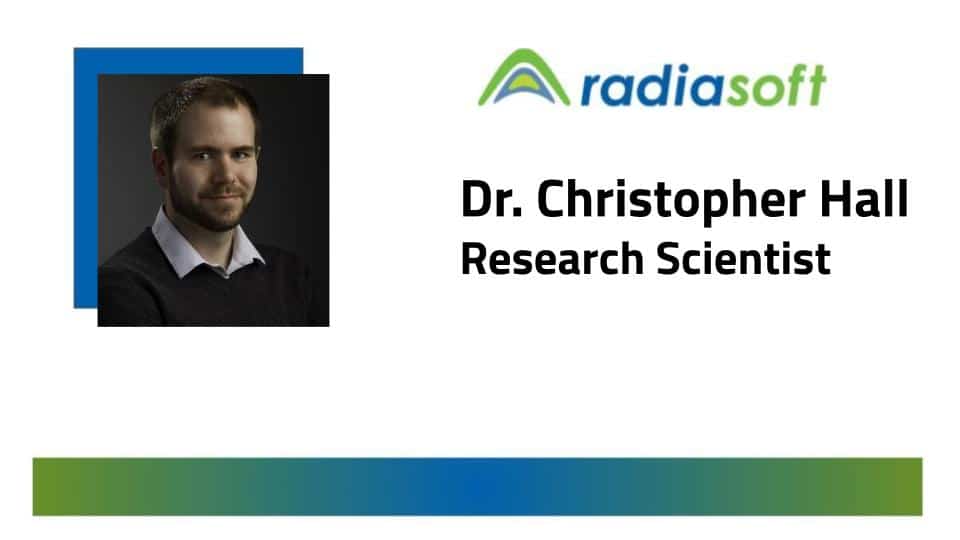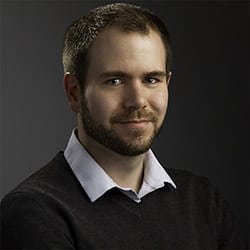
Meet Your Research Scientist: Dr. Christopher Hall
Meet the RadiaSoft team in this ongoing Q&A series, where we introduce you to our stellar employees. Learn about their work, their background, and some of the things that make them who they are. Today, Dr. Christopher Hall talks about his multi-faceted job at Radiasoft, a few of the interesting projects he’s worked on, and some things he wishes he more people knew about accelerators.

What do you do at RadiaSoft?
I am a research scientist, primarily focused on particle accelerator design and optimization.
What’s your educational and career background?
I have a B.S. from Hope College in Holland, Michigan. As an undergrad I worked on analysis of nuclear physics experiments to study high unstable isotopes (primarily Lithium-12 and Lithium-13) along the neutron drip line. I have a M.S. in physics from Michigan State University where I worked on design of the REA3 beamline. Finally my Ph.D. is from Colorado State University and my thesis work involved experimental analysis on the impact of coherent synchrotron radiation in the Jefferson Lab Energy Recovery Linac.
What’s the biggest misconception about your field and why?
I think one of the biggest misconceptions in the general public is about the relative prevalence of particle accelerators and their uses. The Large Hadron Collider consumes so much media attention that most people are not aware of other accelerators, like synchrotron light sources, that are used frequently in applied research.
Where did you grow up?
Until I left for college in Michigan I lived in a small town called Pataskala in central Ohio.
Before joining RadiaSoft, what’s the strangest or most interesting job you held?
When I was first starting my master’s degree at Michigan State University I did a short stint in a biophysics group. I got to work in a clean room which was interesting until I was starting to be trained on making and using piranha solution for cleaning experimental equipment. It was at that point I decided I needed to find a different research group, and ultimately ended up working for an accelerator physicist.
Who is your favorite scientist from history and why?
I don’t know if he is ‘from history’ yet but I like Andre Geim for being the only person to have, so far, won both Ig Nobel and Nobel prizes.
Tell us about one of your current projects.
I work on a wide variety of projects currently. One of the main main projects, that I am the Principal Investigator for, is focused on using a particular variety of neural network called a variational autoencoder to better analyze data from beam position monitors in particle accelerators. Beyond that I also help with a variety of projects with design optimization elements, and maintain a Python library for orchestrating optimization and data generation called rsopt.
What is a talent, secret superpower, or fun fact about yourself that people wouldn’t guess?
I really like Futurama and I find their slogan amusing.
What’s your favorite Slack emoji and why?
The Futurama logo! I have a poster of it hanging over my desk.

What’s something you wish people understood better about RadiaSoft or Sirepo?
Radiasoft’s Sirepo platform is a really great tool for using a lot of different scientific codes, many of which have complicated command line interfaces. You can get even more out of Sirepo if you are willing to switch back and forth, because both command line and GUI have their strengths. Recognizing this and learning to use each can make many tasks a lot easier than if you stick to just one or the other.